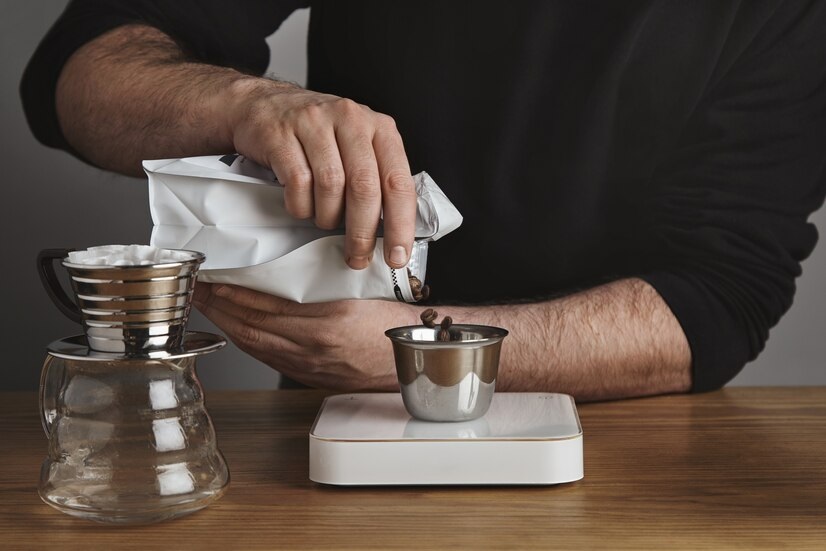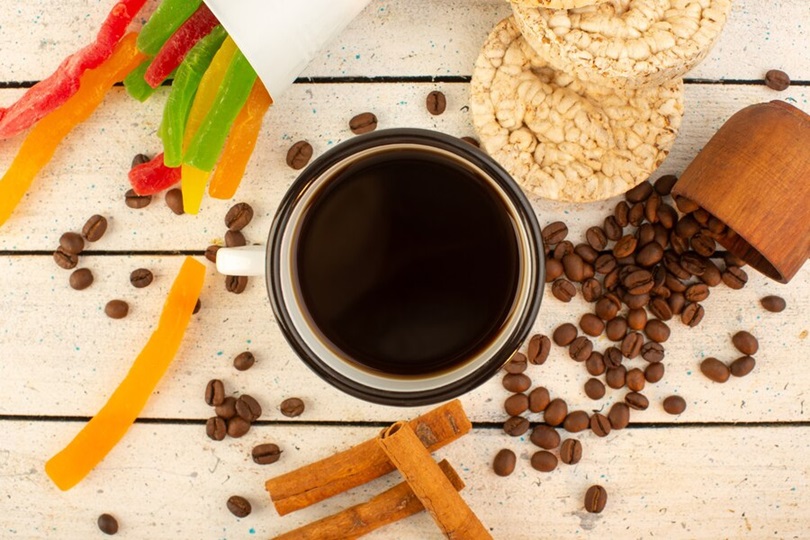Table of Contents
What Makes Black Coffee Ideal for Weight Loss?
Black coffee is a simple yet powerful beverage with only two main ingredients: water and coffee. Without added sugar or milk, black coffee is low in calories, making it a perfect choice for those on a calorie deficit. Here’s why how to make black coffee for weight loss.
- Boosts Metabolism: The caffeine in black coffee stimulates metabolism, encouraging the body to burn more calories.
- Suppresses Appetite: Drinking black coffee can curb hunger and reduce calorie intake.
- Energy for Workouts: Black coffee provides a quick energy boost, improving exercise performance.
- Detoxification: It acts as a natural detox, flushing toxins from the body.
How to Make Black Coffee for Weight Loss: Step-by-Step Guide
Making black coffee for weight loss is simple, but the brewing method can affect its flavor and benefits. Here’s how you can prepare it:
1. Ingredients Needed
- 1 tablespoon of freshly ground coffee (medium or fine grind)
- 1 cup (250 ml) of water
2. Steps to Brew Perfect Black Coffee
- Boil the Water: Start by heating water until it reaches a boiling point (about 195–205°F).
- Add Coffee Grounds: Place the coffee grounds in a French press, drip coffee maker, or use instant coffee powder.
- Pour Hot Water: Pour the hot water over the coffee grounds. If using instant coffee, dissolve it directly.
- Brew Time: Allow the coffee to brew for 4–5 minutes for maximum flavor.
- Strain or Stir: Strain the coffee if using a French press or simply stir if it’s instant coffee.
- Serve Hot: Pour the black coffee into a mug and enjoy it plain. Avoid adding sugar or milk.
Variations of Black Coffee for Weight Loss

To add variety without compromising its weight loss benefits, try these methods:
1. Cold Brew Black Coffee
- Use coarse coffee grounds and steep them in cold water for 12–24 hours.
- Strain the mixture and serve over ice.
2. Espresso Shot
- Brew a single shot of espresso and sip it as-is for a concentrated caffeine boost.
3. Cinnamon Infusion
- Add a dash of cinnamon while brewing for a flavorful, metabolism-boosting twist.
4. Black Coffee with Lemon
- Add a few drops of lemon juice for a zesty, fat-burning beverage.
Best Time to Drink Black Coffee for Weight Loss
The timing of your coffee consumption can significantly impact its effectiveness:
- Morning: Drinking black coffee in the morning kickstarts your metabolism.
- Before a Workout: It provides an energy boost, enhancing workout performance.
- Between Meals: Sipping black coffee mid-morning or afternoon can suppress hunger.
Nutritional Facts of Black Coffee
| Nutrient | Amount Per Cup (240 ml) |
|---|---|
| Calories | 2 |
| Protein | 0 g |
| Fat | 0 g |
| Carbohydrates | 0 g |
| Caffeine | 95 mg |

Tips for Making Black Coffee for Weight Loss
- Choose Quality Beans: Opt for freshly roasted, high-quality coffee beans for better taste and benefits.
- Avoid Sweeteners: Adding sugar, syrups, or cream can negate weight loss benefits.
- Use Filtered Water: Clean, filtered water improves the flavor.
- Control Caffeine Intake: Limit to 2–3 cups per day to avoid side effects like jitters or insomnia.
- Stay Hydrated: Pair black coffee with water to prevent dehydration.
Common Myths About Black Coffee and Weight Loss
- Myth: Drinking black coffee alone can lead to weight loss.
Fact: Black coffee supports weight loss but should be paired with a balanced diet and exercise. - Myth: More coffee equals faster results.
Fact: Excessive coffee can lead to health issues like anxiety and insomnia.
Precautions and Side Effects
While black coffee has numerous benefits, excessive consumption can have side effects:
- Increased heart rate or jitters
- Acid reflux or stomach discomfort
- Dependence on caffeine
Conclusion
Learning how to make black coffee for weight loss is a simple and effective step toward a healthier lifestyle. By understanding its benefits, preparing it correctly, and incorporating it into your daily routine, you can maximize its impact. Remember, black coffee is a tool to aid weight loss, but success also depends on a balanced diet, regular exercise, and a consistent routine.
Disclaimers
This article is for informational purposes only and is not a substitute for professional medical advice. Always consult a healthcare provider before making significant changes to your diet or lifestyle.




